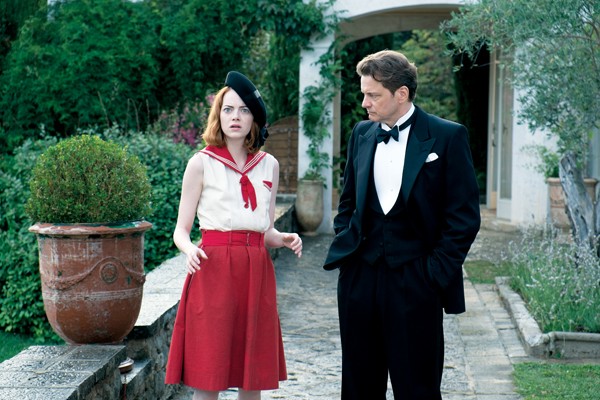2001: A Space Odyssey regularly jockeys for position with Citizen Kane and Vertigo atop lists of the greatest movies ever made. When Stanley Kubrick set out to create what he called “the proverbial good science-fiction movie”, he tapped Arthur C. Clarke, the super-genius author who came up with the idea for the communications satellite, and the resulting masterpiece explores the space between scientific rigor and religious awe.
But sometimes it seems 2001‘s influence on the genre it sought to perfect has not been universally positive. Consider 1968’s other great sci-fi hit, Planet of the Apes. It, too, concerned itself with humanity’s ultimate fate, but its big ideas are wrapped in a fun package. There should be enough room in sci-fi for both Charlton Heston snarling “You damn dirty apes!” and Keir Dullea staring into psychedelic infinity. But too often, when directors are given free reign, they feel obligated to try to top Kubrick. Consider two recent examples of hundred-million- dollar misfires: Christopher Nolan’s Interstellar and Ridley Scott’s Prometheus. Nolan’s spectacular, 2001-inspired 70-mm photography couldn’t save Interstellar from collapsing into self-important gobbledygook. For Prometheus, Scott disappointed everyone by ditching the pulpy, “haunted-house-in-space” premise that made Alien a classic in favor of wallowing in secondhand Kubrickian mysticism.
Scott learned his lesson with The Martian. The origin and fate of all humanity are not at stake, just the life of one man: NASA astronaut Mark Watney (Matt Damon). Adapted from a best-selling novel by Andrew Weir, The Martian‘s inspiration comes not from universe-spanning epics, but from the 1954 short story “The Cold Equations,” in which a space pilot and a stowaway must grapple with the fact that they don’t have enough fuel to land safely. Newtonian physics creates the fodder for high drama.
When an unexpected sandstorm forces the crew of the Ares 3 mission to leave the red planet in a hurry, Watney is hit by flying debris and left for dead. But Watney wakes up and drags himself back to the expedition’s abandoned, but still mostly functional, base, where he performs some gruesome self-surgery and tries to come to grips with the fact that he is more alone than anyone has ever been. The opening sequence, where the crew struggles through the storm and mission commander Melissa Lewis (Jessica Chastain) must make the gut-wrenching decision to leave, are some of Scott’s best work since Black Hawk Down. The story then splits into three: the castaway’s uphill battle to survive in Mars’ harsh environment; the NASA ground team discovering they’ve still got a live astronaut on the Martian surface; and the expedition crew flying through the solar system with only enough fuel to return to Earth. Everyone must work together to rescue Watney as the world watches.
The Martian often plays out like a fictionalized, future version of Apollo 13. Scott and screenwriter Drew Goddard get all the little details right, like how calling a NASA scientist a “steely-eyed missile man” is the highest compliment, and how “lock the doors” is the worst thing you can hear in mission control. But they never get bogged down in minutiae, thanks largely to Damon’s engaging and vulnerable performance. The cast is huge, and features workmanlike performances from Jeff Daniels as the NASA director, Kristen Wiig as the beleaguered PR specialist, Chiwetel Ejiofor as the mission director, and Sean Bean as the head of the astronaut corps. But even though Scott is excellent at ratcheting up the tension back on Earth, I found myself eager to return to Mars to watch Damon living by his wits while pausing occasionally to take in the otherworldly vistas Scott creates from heavily CGI’d footage of the Jordanian desert.
The Martian is a major return to form for Scott, who seems inspired by NASA’s can-do spirit. The film’s optimism is a far cry from the darkness of Blade Runner, but it has proven to be a big hit with audiences, massively outperforming box-office projections by grossing $55 million in its opening weekend. As this film and Gravity prove, science fiction is sometimes better when it concentrates on the small questions, like how to find your way home.
The Martian
Now playing
Multiple locations
